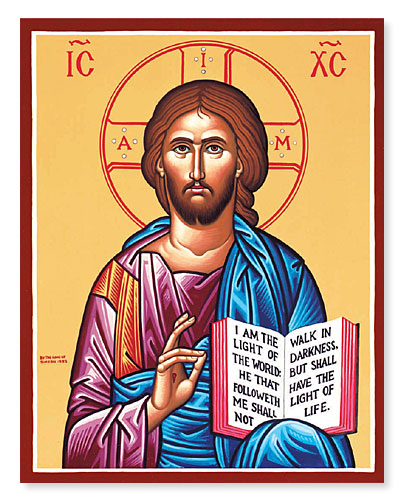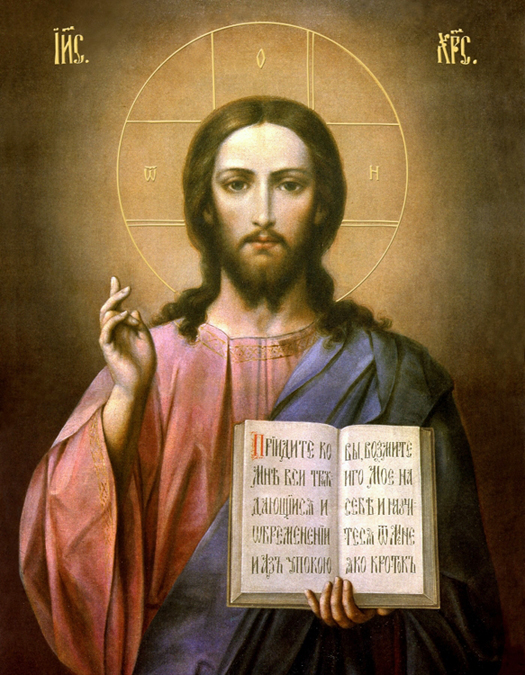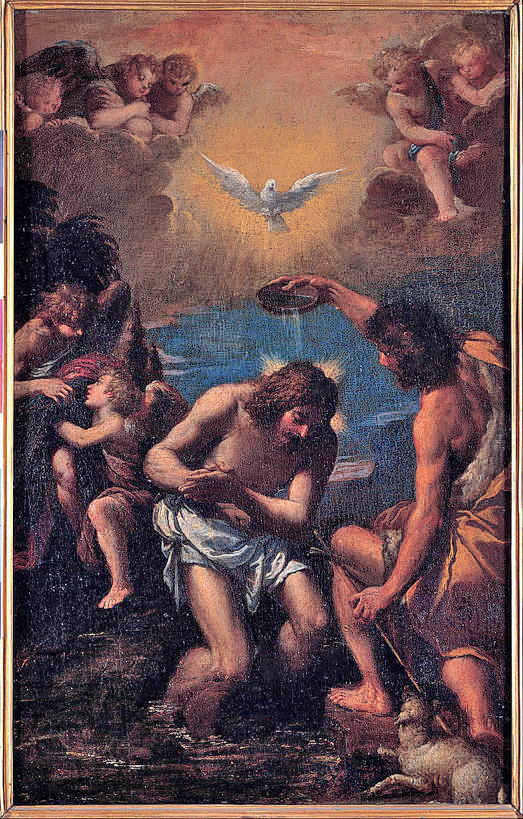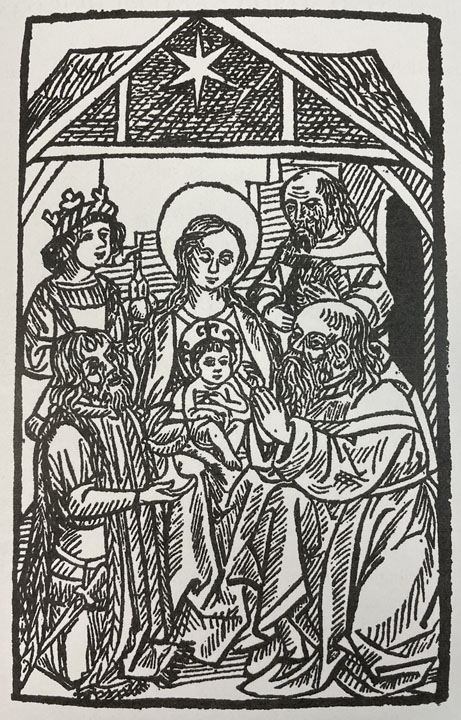Online Sermons
March 13, 2022
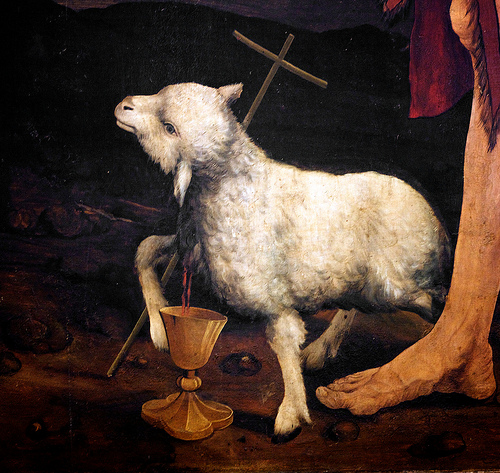 Lent |
|
March 13, 2022
Lent
In the Name of God the Father, Son, and Holy Spirit.
Amen. Heavenly Father, it is your glory always to have mercy. Bring back all who have erred and strayed from your ways; lead them again to embrace in faith the truth of your Word and to hold it fast; through Jesus Christ your Son, our Lord, who lives and reigns with you and the Holy Spirit, one God now and forever. Amen.
Opening Hymn: “Jesus, Refuge of the Weary” (LBW 93)
|
|
Sermon: March 13, 2022
Slava Kyrie Luke 13:35 The Reverend Philip Nesvig
As we move one week further
into Lent, I am reminded of an old saying. “Art
imitates life.” This is to say that current events
will find their way into various forms of art.
Think of the Nobel Prize-winning writings of Aleksandr
Solzhenitsyn or the political protests disguised in the
music of Leopold Stokowski. Now think of the
enormous anti-war art piece by Picasso entitled
“Guernica.” This oil canvas grotesquely portrays
the terror and destruction of the Spanish Civil War in
1937. A bull is even included in the terrible
scene. Art imitates life. Art mirrors life.
The list of books, poems, paintings, and music is as
long as history itself.
I think that the Bible is art. And the life which
the Bible imitates is the interaction between God and
human beings. No emotion is spared in the Bible.
No evil goes unexamined. No sin is left unnamed.
No death is hidden from view, especially the death of
Jesus of Nazareth. And yes, no greater surprise is
expressed, and no greater joy is known when people find
themselves in the presence of the risen Lord Jesus
Christ. “My Lord and my God,” shouted Thomas the
twin. “The Lord has risen indeed” shouted the
villagers of Emmaus. “Were not our hearts burning
within us while Jesus was talking to us on the road?”
(Lk 24.34, 32.)
It is still Lent, so we are not yet ready for any Emmaus
joy. But art imitates life, so we are ready to say
to each other that “our hearts are burning” because we
have seen houses, hospitals, tanks and people burning in
Ukraine. Art imitates life, so we are those who
find the destruction of Ukraine to be appalling.
It is gut-wrenching. It is agonizing. It is
beyond depressing. The Swiss theologian Karl
Barth, who left Germany in 1935 because he refused to
swear an oath of loyalty to Adolf Hitler, is given
credit for this admonition to preachers. “Preach
with the Bible in one hand and the newspaper in the
other.” His meaning was that current events should
be evaluated in light of the Bible. Art imitates
life. The Bible is art—a mirror for what is
happening today in our world.
I heard it said many times in the late ‘60s and early
‘70s that preachers should stick to religion and not
make mention of political events. But the events
of the past two weeks are not squabbles between
Republicans and Democrats. These events are the
forces of darkness against the shining of light.
These events are about truth and propaganda lies.
These events are historic and cataclysmic for millions
of people—including millions of our fellow Christians
whose lives are being uprooted, destroyed, and changed
forever. It is truly pathetic, and my heart
grieves the losses which I see in my newspaper, which
includes my TV and my iPhone.
When such pathos strikes our hearts, we cannot help but
join the ranks of the Old Testament prophets.
These prophets…Isaiah, Jeremiah, Amos, Hosea…and all the
rest, cried out in protest over and over again.
The targets of their protest were the royal houses of
Israel…those kings who were almost 100% intoxicated by
their power and wealth. It is said by scholars
that only two kings were truly faithful in the Old
Testament. These prophets did not avoid mixing
politics and religion. If we avoid the topic, we
are not reading the Bible or applying it very well to
our day.
In turn, the New Testament gospels are set within a
backdrop of the foreign power of Rome dominating the
daily life of what my boyhood Bible called Palestine.
Herod, the fox, was the puppet ruler over that piece of
turf. He was “the sheriff” whose job was to keep
the lid on any disturbance or rebellion. He did
his job well. Since he came from the gene pool of
his evil father, Herod the Great, it is no surprise that
when John the Baptist confronted Herod Jr. (Antipas),
about his immoral marriage, Herod ordered John to be
beheaded. (Lk 3.19-20)
Fast forward 10 chapters in Luke’s Gospel. Here’s
our Gospel lesson for today. Jesus was warned by
the Pharisees—who were on his side for once—to take
refuge. Find a safe cave and lie low! But
Jesus said, “Go and tell that fox.” Fox? How
about a roaring lion?! Herod’s butchers could have
sliced up Jesus just as the Pharisees warned. But
Jesus remained on course. He had not yet completed
his mission for God the Father. There were
exorcisms and healing cures to be performed. He
responded like this to the Pharisees and hoped that
Caesar’s puppet, Herod Antipas, would get the message.
“Step aside. Listen. I am going about my business
as usual “today and tomorrow, and on the third day I
finish my work. Yet today, tomorrow, and the next
day I must be on my way, because it is impossible for a
prophet to be killed outside of Jerusalem.”
Jesus, the Son of God, is solid in his purpose and
witness. He seems cool and collected, his anger
rising, but now his anger turns to anguish.
“Jerusalem, Jerusalem, the city that kills the prophets
and stones those who are sent to it! How often
have I desired to gather your children together as a hen
gathers her brood under her wings, and you were not
willing.” The old RSV language says, “and you
would not!” I like that version, but I like the
Greek play on words even better. Jesus says, “I
desired you, but you desired not.” That’s divine
desire but human lack of desire. Human beings know
what’s good for us, but we are apathetic when the stakes
are raised regarding Jesus. So this is the sound
of a lover’s spat, a marriage in jeopardy, one spouse
saying to the other, “We’re not in this together.
I don’t think this marriage is going to work. We
have no mutual desire.”
The intimacy of our faith marriage has nothing to do
with sex. Instead it is the image used by Paul in
his letters and John’s Book of Revelation to describe
the grace of a Christian’s relationship with Christ the
bridegroom. It is Jesus saying, “There’s some
stunning beauty to our faith relationship. Don’t
muck it up. I desire you, and I’m waiting for you
to desire me. What kind of chickens are you?
You don’t want to come to me for safety? What do I
have to do? Gather you under my wings like a mother hen
does for her chicks?” The text says that’s
precisely what Jesus is prepared to do. Jesus
keeps reaching out, keeps calling us through his word.
Jesus keeps desiring to gather us, keeps offering us his
body and blood. Nevertheless, the human response
hangs in the air. We are a stubborn lot! But
the Holy Spirit is at work through such a “desire to
gather us in” as the “brood of Christ.” Whether
“brood” or “bride,” it is a declaration of love unto
“death do us part.” And it is also a painful
remembrance of humanity’s consistent and sinful
rebellion against the love of God in Christ.
What does it take for us to be a chick fleeing from
danger to our mother hen? It usually takes some
shocking events. When I was a boy visiting my
great Uncle Carl on his dairy farm in Wisconsin, it was
the shocking event of a skunk attacking the chickens.
Carl came running with his shotgun, and that was the end
of it! I was stunned by what I had seen. And
remember the two examples in the beginning of Luke 13?
Some Galileans have died at the hand of Pilate while
offering religious sacrifices. In addition, a
construction tower has collapsed and killed 18 people.
What message of sympathy does Jesus give? Here it
is: “Unless you repent, you will all perish just
as they did.” (Lk 13.5)
Now that’s some kind of “shock and awe!”
Death awaits all those who do not repent!
The events of the past two weeks are also “shock and
awe” for us, even when the bombs are not falling in our
neighborhoods. Evil is a constant reality in our
world. Worse yet, evil never really goes away.
When this horrible war is settled, there will come yet
another one at some point in the future. The name
Herod is ever relevant. We might dare to say that
we need a Brutus to take us out of this mess.
Julius Caesar had his Brutus, while Jesus had his Judas.
Judas did not wield the dagger, but his betrayal of
Jesus sent him into a kind of repentant suicide.
His tragedy was that Jesus desired him also, but he
desired not.
The mysteries of repentance, that is, desiring Jesus,
are not under my control or your control. It is,
as the Augsburg Confession says, the work of the Holy
Spirit “who works faith, when and where he pleases, in
those who hear the Gospel.” I wish I knew how to
unravel that enormous ball of yarn regarding why some
people hear and desire the Gospel, while many do not.
Nevertheless, “The Office of the Ministry” in the
Augsburg Confession pushes on beyond that question to
say: “And the Gospel teaches that we have a
gracious God, not by our own merits but by the merit of
Christ, when we believe this.”
(Book of Concord, Tappert
edition, p. 31)
I also fervently wish that I knew why this war started
and when it will end. I would have an extremely
hard time telling any Ukrainian that this calamity is a
lesson in repentance like Jesus did in Luke 13. I
suspect a Ukrainian Christian might be on the verge of
faithlessness and lament to us that faith in Christ
didn’t do them any good. The fox has eaten the
chicks because no mother hen came to gather us under her
wings.
These are painful matters to contemplate. Our
point of solidarity with the Ukrainian Church and all
people is this: the mother hen was killed in a
gruesome crucifixion. The forces of good and evil
clashed. The good lost but only for three days.
I have no rationale reasons to offer regarding the
slaughter of the innocents in Ukraine and other trouble
spots, including the many, many senseless deaths in our
own community. It is the continual manifestation
of evil which will not end until Christ ushers in a new
heaven and a new earth. So I hope that we and the
Ukrainian Christians will be able to hold our faith.
The bad news is that these evil actions will never be
completely thwarted. Worse yet—we are
participants—sometimes instigators of evil actions.
The good news is that God has already solved this crisis
by placing Christ on the cross. Christian hope is of a
different nature. We have a different ruler than
any of the series of foxes who hold earthly power.
1 Peter reminds us to keep alert because there is a
roaring lion, our adversary the devil, who prowls around
looking for someone to devour. But we are “a
chosen race, a royal priesthood, a holy nation, God’s
own people, in order that (we) may proclaim the mighty
acts of him who called (us) out of darkness into his
marvelous light.” (1 Pet 2.9)
Jesus said, “Your house is forsaken. And I tell
you, you will not see me until the time comes when you
say, ‘Blessed is the one who comes in the name of the
Lord.” On the liturgical calendar, that day is
Palm Sunday. On our faith calendar, that day is
every day that some kind of “shock and awe” leads us to
repentance, faith and hope. Hebrews 11 says that
“faith is the assurance of things hoped for, the
conviction of things not seen.” So we wait with
patience and trust for that day when we can join the
throng and shout “Slava Kyrie.” “Glory to the
Lord.”
Hymn of the Day:
“O God of Earth and Altar” (LBW
428)
|
|
|
Benediction: The Lord bless you and keep you; the Lord make his face shine on you and be gracious to you; the Lord look upon you with favor and give you peace. In the name of God the Father, Son, and Holy Spirit. Amen.
|
|
“Jesus’ destiny is to go to Jerusalem
and die, risking the threats of the fox, and adopting the role
of the mother hen to the chickens faced with sudden danger.
But will Jerusalem benefit from his offer? Jerusalem has a
long history of rebelling against God, refusing the way of peace
(that sentence, alas, seems to be as true in the modern as in
the ancient world). As Ezekiel saw, rebellion meant that
the holy presence of God had abandoned the Temple and the city,
opening the way for devastating enemy attack (Ezekiel 10-11).
The only way for the city and Temple to avoid the destruction
which now threatened it was to welcome Jesus as God’s
peace-envoy; but all the signs were that they would not.
When Luke brings us back to this point again, it will be too
late. What can we see from the vantage
point of the end of chapter 13? We can see, with
devastating clarity, what Jesus’ journey to Jerusalem is going
to mean. Israel’s greatest crisis is coming upon her, and
he is offering an urgent summons to repent, to come his
kingdom-way, his way of peace. This is the only way of
avoiding the disaster which will otherwise follow her persistent
rebellion. Jesus’ intention now, in obedience to his
vocation, is to go to Jerusalem and, like the hen with the
chickens, to take upon himself the full force of that disaster
which he was predicting for the nation and the Temple. The
one will give himself on behalf of the many.” Tom Wright “Luke for
Everyone,” c. 2004, p. 173
|


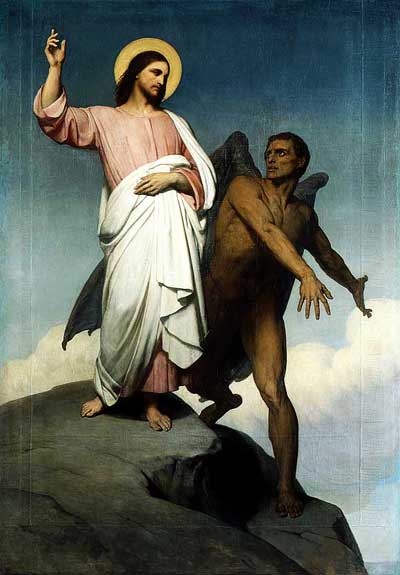
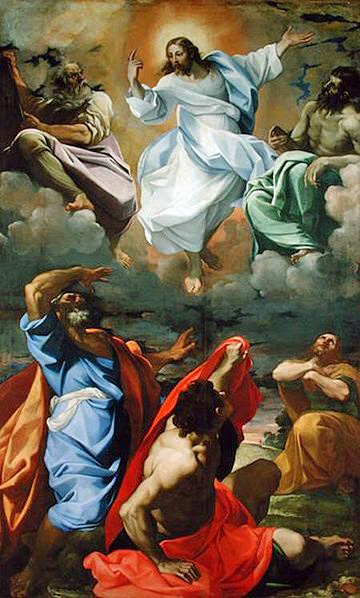



%20no%20heart%20sm%20b%20w%20.jpg)
